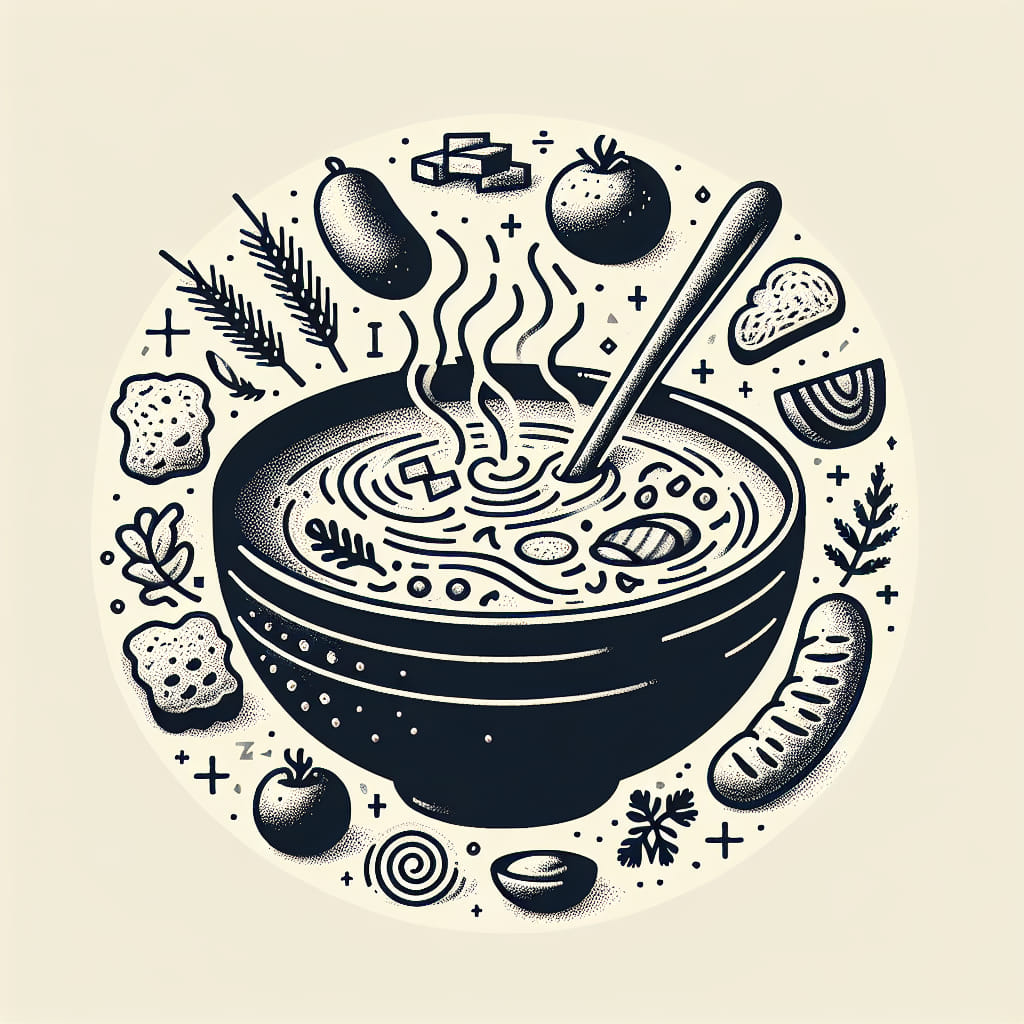· word of the day · 4 min read
Żurek: Discover the Heart of Polish Cuisine and Culture
Discover the cultural richness of Polish cuisine by learning about Żurek, a traditional soup that embodies the essence of Polands culinary heritage.

Learning a new language is like unlocking a treasure chest filled with cultural gems. Each word you discover gives you a deeper understanding of the traditions, values, and daily life of the people who speak that language. One of the most rewarding aspects of language learning is stumbling upon unique and interesting words that don’t just expand your vocabulary but also offer a window into a different way of life. Today, let’s delve into an intriguing Polish word that revolves around food and cuisine, enriching your grasp of this beautiful language.
Introducing the Word: “Żurek”
Żurek (pronounced ZHU-rek) is a term that might make your mouth water if you’re a fan of hearty, comforting soups. This word refers to a traditional Polish soup made from fermented rye flour, often enjoyed during Easter but also popular year-round. The beauty of “żurek” lies not just in its taste but in its cultural significance and the way it embodies Polish culinary traditions.
What is Żurek?
Żurek is a sour rye soup that has a unique, tangy flavor due to the fermentation process. The base of the soup is called “zakwas,” which is a mixture of rye flour and water left to ferment for several days. This base is then combined with ingredients like white sausage (biała kiełbasa), boiled eggs, potatoes, and occasionally smoked bacon. The result is a rich, flavorful soup that is both filling and nutritious.
Cultural Significance
Żurek holds a special place in Polish culture, especially during Easter. It’s often served in a hollowed-out bread bowl, making the experience of eating it even more unique. The soup symbolizes renewal and the end of Lent, a period of fasting and reflection in the Christian calendar. Sharing a bowl of żurek with family and friends during Easter breakfast is a cherished tradition in many Polish households.
How to Use “Żurek” in Sentences
Here are some examples of how you might encounter or use the word “żurek” in everyday conversation:
Na śniadanie wielkanocne zawsze mamy żurek.
(For Easter breakfast, we always have żurek.)Czy próbowałeś kiedyś żurku? Jest naprawdę pyszny!
(Have you ever tried żurek? It’s really delicious!)Babcia robi najlepszy żurek na świecie.
(Grandma makes the best żurek in the world.)
Idiomatic Expressions
While “żurek” itself doesn’t appear in many idiomatic expressions, the concept of food and meals is deeply embedded in Polish idiomatic language. Here are a couple of food-related idioms that might interest you:
Niebo w gębie
(Literally “heaven in the mouth,” meaning something is incredibly delicious.)Robić z igły widły
(Literally “to make a pitchfork out of a needle,” meaning to make a mountain out of a molehill.)
Żurek in Literature and Folklore
Żurek has also found its way into Polish literature and folklore. It is often mentioned in stories and poems that depict rural life and traditional Polish customs. The soup is a symbol of home and family, a dish that brings people together. It’s not uncommon to find references to żurek in tales that explore themes of hospitality and community.
The Joy of Learning Unique Words
Discovering words like “żurek” can be incredibly enriching for language learners. These words offer more than just a way to communicate; they provide insights into the culture and history of the people who speak the language. By learning about żurek, you’re not just adding a new word to your vocabulary; you’re also gaining a deeper appreciation for Polish culinary traditions and the role they play in social and cultural practices.
Conclusion
As you continue your journey of learning Polish, take the time to explore unique and culturally significant words like “żurek.” These terms will not only enhance your language skills but also deepen your understanding of Polish culture and traditions. So the next time you come across a bowl of żurek, you’ll know that you’re tasting more than just a delicious soup—you’re experiencing a piece of Polish heritage.
Ready to dive deeper into the Polish language? Download Glosa here and start your language learning adventure today!




